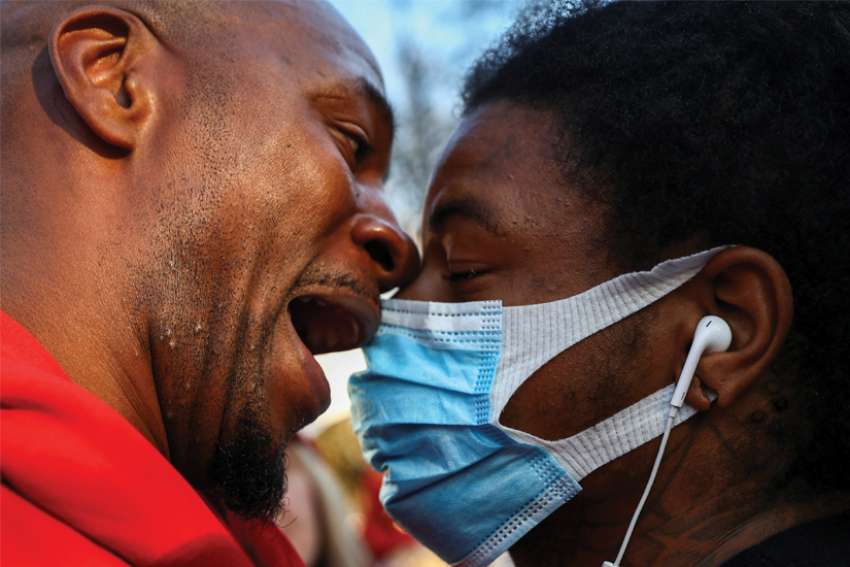As of this writing the battle to determine the legitimacy is heating up and I suspect by the time you read this it will not be settled.
But when this is finally over there will be a lot to think about. I am not talking about political realignment in the United States or life under Joe Biden or whether Donald Trump was robbed.
I think what we should take out of this is how we deal with disappointment and our responsibility to set an example to those who look to us for guidance.
This is particularly important for Christians for we are told over and over again the need for humility. We are also told that Christ came as a child in weakness, not with armies and hordes of lawyers.
Politics is not the end-all for Christians. We look to eternity while politicians look to a few years of temporal power.
But like it or not our political leaders set a tone and a model that many take seriously. Even out of office their legacy has a great influence on how we determine what is right and wrong.
There is a reason that 15,000 books have been written about Abraham Lincoln.
I am obviously speaking of Donald Trump’s reaction to the vote. Whether you like him or not his petulance did not serve him well. This will now be part of his legacy.
Grown men and women sulking are never pretty sights.
I do not question Trump’s right to look into possible fraud or other irregularities in the election. When you have 50 states with their various ways of counting there is going to be disputes. And, of course, anything that involves human beings will never be perfect.
I do, however, question his public reaction because of the message it sends. Millions of people adore him and with that comes a responsibility to act with dignity. He is in effect saying humility and weakness is for losers and suckers.
Forget politics for a moment. Think of something more down to earth — like what it takes to be a good parent.
Parents go through all sorts of turbulence. Things do not always go their way. And yet good parents try to impart a lesson to their children in the midst of whatever life throws at them: that life is not always easy and sometimes we have to accept what we would rather not … that the really important thing is our reaction. Anyone can be magnanimous in victory.
We have all seen the hockey parents who go insane when a call is made against his child’s team. When I was a boy I would see parents fight in the stands at a Little League game. I still remember being stunned that they should care so much that they would throw punches.
Those examples send the message that winning is everything and losing is cause for anger and lashing out.
We are told as Christians that we should put our faith in God. God will never disappoint. But men and women will.
We are also told that earthly power is ephemeral. Even the worst dictators in history — Hitler, Stalin and Pol Pot — eventually collapsed.
In those totalitarian states God was pushed aside. But when the regimes fell there was nothing but waste and ruin and horrible sadness.
“Put not your trust in princes, in a son of man, in whom there is no salvation,” says Psalm 146:3.
We are also told as Christians that weakness is not a fault or something to combat like a disease. If weakness were a sin then Our Lord would not have been born in a manger to poor parents. Christ would have called down angels of vengeance on those who nailed Him to the cross.
“My grace is sufficient for you, for my power is made perfect in weakness,” it says in 2 Corinthians. “Therefore I will boast all the more gladly of my weaknesses, so that the power of Christ may rest upon me.”
The hardest thing about being a Christian, I believe, is behaving like a Christian. This goes far beyond attending Mass or celebrating the feast days. It goes to what example we set for others.
St. Francis allegedly said preach the Gospel and use words if necessary.
Our actions speak louder than words.
(Lewis is a Toronto writer and regular contributor to The Register.)

